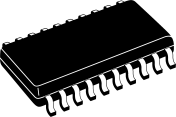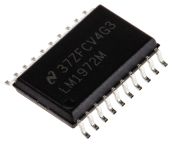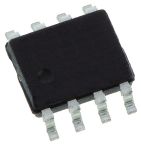Variable Attenuators
Variable attenuators are a type of radio frequency attenuator that permits the signal level to constantly change. Attenuators are devices that decrease the power of a signal without noticeably distorting its waveform. This protects the circuitry from receiving a signal that is too powerful. RS offer a range of high-quality devices from leading brands including Analog Devices and Texas Instruments. Browse our range for all of your electronic application needs.
Variable attenuators are used when the signal level needs to be able to change frequently. This is useful when you don't know exactly what the final desired signal range is or when accuracy is not a priority. Attenuators can be thought of as the opposite of signal amplifiers. An amplifier increases signal power (or amplitude) while an attenuator decreases it.
How do variable attenuators work?
The signal level of variable attenuators is altered either manually or remotely. In manual variable attenuators, the signal level is changed by physically controlling the device, using something like an adjustable screw control. If they are controlled remotely, a motor or PIN diode uses variable voltage to change the signal.
Types of variable attenuators
Variable attenuators come with PIN diodes or MESFETs (metal-semiconductor field-effect transistors) as resistors to modulate amplitude. They can use either balanced or unbalanced pi-pad or T-pad circuits.
Applications
Variable attenuators are used in various electronic applications in many industries. Some of the most common are
- Mobile phone 3G infrastructure
- Microwave and Radio
- Test equipment and sensors
- IF and RF applications
Our range of variable attenuators are available in industry-standard package types, pin counts and mounting types. With maximum attenuation levels ranging from 2 dB to 78 dB and maximum frequency ranging from 3 MHz to 50 GHz.



